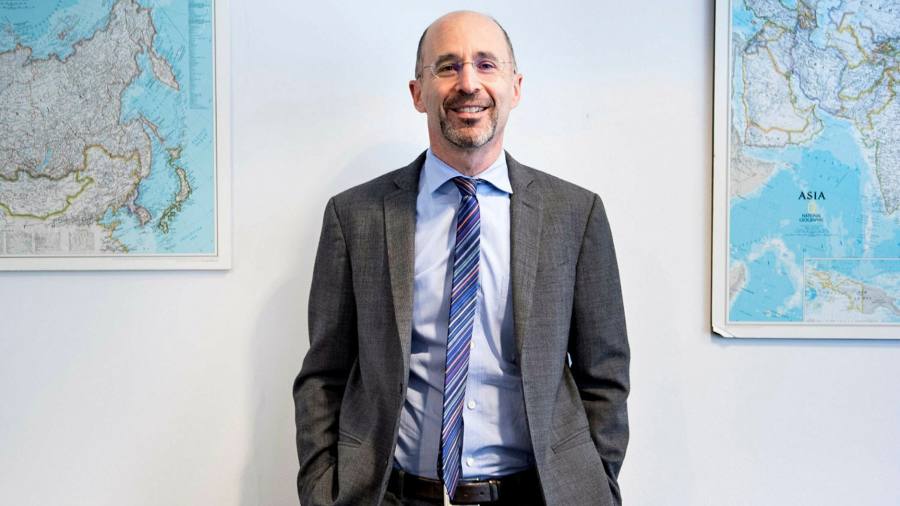[ad_1]
In the 2008 US presidential election campaign, Barack Obama suddenly pushed out Robert Malley, a top adviser on the Middle East. Mr Malley’s supporters tried to face down a barrage of attacks by rightwing pro-Israel groups. But the Obama team capitulated after it became public that he had met with Hamas, the Palestinian Islamist movement that controls the Gaza Strip.
No matter that such meetings were intrinsic to Mr Malley’s previous job with the International Crisis Group, an NGO devoted to preventing or defusing conflict. He was seen as a political liability.
Fast forward to President Joe Biden, Mr Obama’s vice-president, who has just appointed Mr Malley as US special envoy for Iran. Once more, he was pilloried by the pro-Israel right, Gulf Arab officials and some Iranian-Americans, who claimed he is biased against Israel and “Iran’s ideal candidate for the position of American envoyâ€.
This time a counter-barrage, from a foreign policy elite studded with unimpeachably pro-Israel figures, was ready to fire back. The smears against Mr Malley were swiftly countered. The attempt to sabotage the appointment by detonating a proxy war over the Biden team’s Iran policy failed.
That policy is to return to the 2015 deal in which Iran agreed with the US and five other powers to mothball most of its nuclear programme in exchange for lifting economic sanctions. (President Donald Trump unilaterally withdrew from the accord in 2018.) This will be very difficult, especially if Washington seeks to follow up with agreements to curb Iranian proxies from turning Iraq, Syria, Lebanon and Yemen into Tehran’s quasi-protectorates while threatening Gulf Arab states.
Yet the Malley appointment, alongside Mr Biden’s selection of seasoned diplomats involved in the 2015 nuclear deal, such as Antony Blinken as secretary of state and William Burns as CIA director, is a strong statement of intent. It could hardly be more different to the outgoing US envoy for Iran, Elliott Abrams, one of a cohort of Trump aides who acted more as lawyers for Israel than mediators.
Mr Biden’s opponents seem especially antagonised that Mr Malley approaches negotiations armed with facts. After Mr Trump’s defeat he tweeted that his “maximum pressure†policy saw Iran’s enriched uranium stockpile rise from 102kg to nearly 2.5 tonnes. He also tries to understand how the US looks to its adversaries. Part of the US team at the abortive Camp David summit with Israel and the Palestinians in 2000, he later argued that blame for its failure lay not just with Yassir Arafat, the Palestinian leader, but with Israeli premier Ehud Barak and his own boss, President Clinton.
When he eventually joined the second Obama administration, Mr Malley was an important actor in the 2015 negotiations with Iran. Before stepping down last month as head of the ICG he published what amounts to a calibrated road map for negotiating with Tehran — an approach the Biden team now seems to embrace.
There are other Biden departures from the Trump approach to the Middle East. Though a pro-Israel Democrat throughout his career, the president has named a number of Arab-Americans to sensitive roles. He has also put Gulf allies on notice by suspending delivery of precision munitions to Saudi Arabia and F-35 stealth warplanes to the United Arab Emirates. Gulf sources are warning of a return to the acrimony of the Obama era.
But most suggestive of all are indications that discreet contacts have already resumed between the US and Iran, and between the Saudis and Iranians — arch rivals for regional hegemony. One straw in the wind came in an op-ed published this week by Abdulaziz Sager and Hossein Mousavian, well-plugged-in figures on respectively the Saudi and Iran sides. They argue for co-operation that addresses both countries’ concrete security concerns — a reality-based approach that Mr Biden seems now to favour.
[ad_2]
Source link





